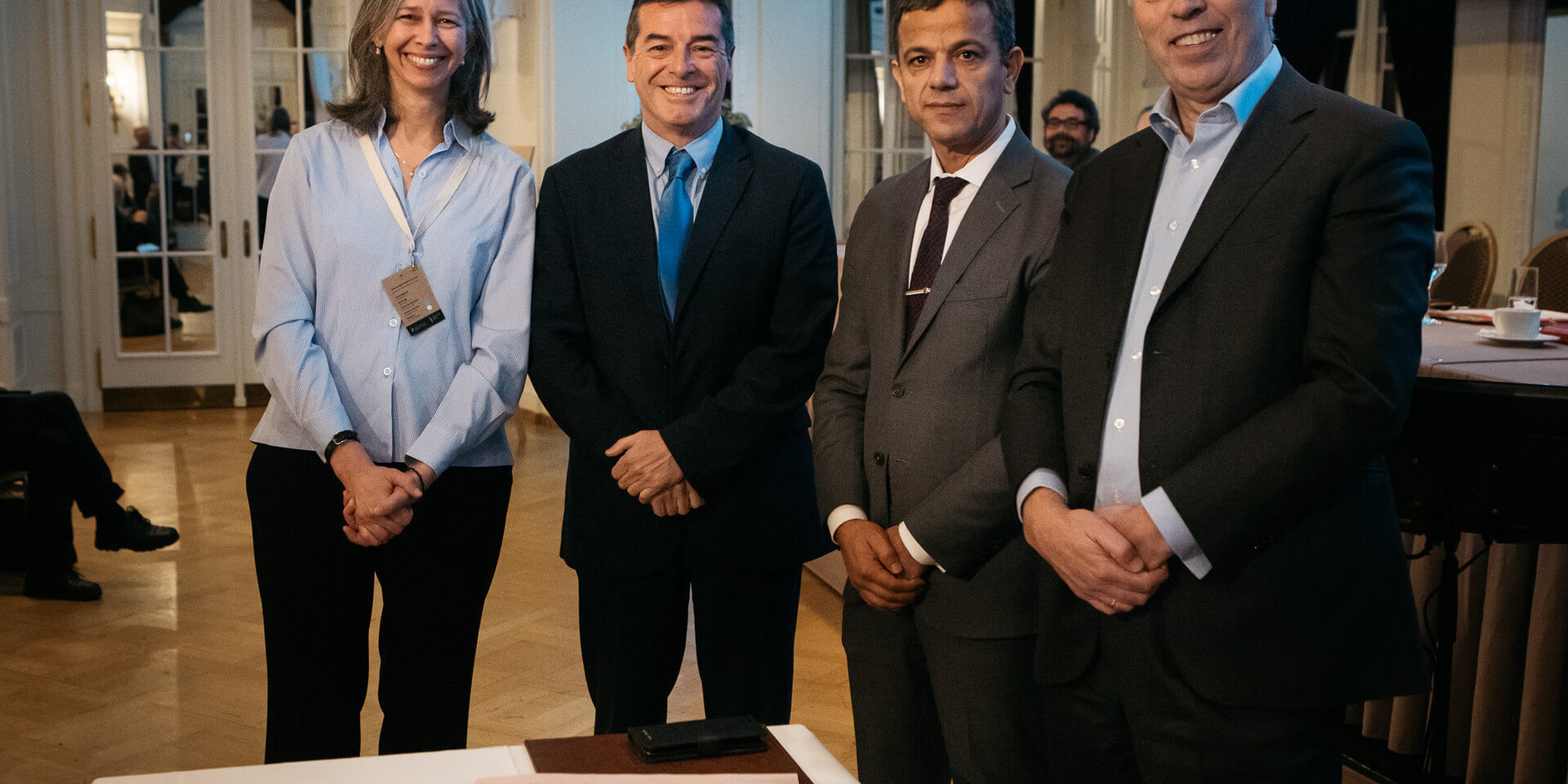
Bern, 27 February 2020 - The Partnership for Carbon Accounting Financials (PCAF) and the General Council for Islamic Banks and Financial Institutions (CIBAFI), signed today a Memorandum of Understanding (MoU) to enable Islamic banks to measure and disclose the greenhouse emissions financed by loans and investments.
PCAF and CIBAFI will collaborate in the development of bespoke carbon accounting methods, which Islamic banks can use to measure portfolio emissions. The methodology will be prepared by CIBAFI Secretariat with support from its members in collaboration with PCAF.
Through this collaboration CIBAFI aims to have its members subscribe to the PCAF initiative, whereby they commit to measure emissions of their lending and investment portfolios.
The MoU was signed by the PCAF Steering Committee and Dr. Abdelilah Belatik, Secretary General of CIBAFI, during the 11th Annual Meeting of the Global Alliance for Banking on Values.
“This Memorandum of Understanding between PCAF and CIBAFI to jointly develop methodologies for Islamic banks to measure and report GHG emissions is an important step forward to advancing deep positive change in the banking sector worldwide. The PCAF - CIBAFI partnership is founded on the conviction that action from all financial actors — big and small — is urgently needed. It replicates PCAF’s broader commitment to collaboration and open-source methodologies that will pave the way for every financial institution in the world to develop a transparent relationship with the environment”.
Marcos Eguiguren, PCAF Steering Committee Member and Executive Director of the Global Alliance for Banking on Values
“CIBAFI’s new strategic plan for the period 2019 – 2022 reflects our support to sustainability as well as reinforces the role of Islamic banks in tackling global challenges. Addressing the climate change issue, which represents a threat to the sustainability of the banking sector in general including the Islamic banking sector, must start with the identification of banks’ involvement in the GHG emissions in order to determine the necessary actions to manage the climate change risks. The measurement methodology developed under this partnership between CIBAFI and PCAF will serve as a tool and guide for Islamic banks to measure their portfolio’s emission.”
Dr. Abdelilah Belatik, Secretary General of CIBAFI
About the Partnership for Carbon Accounting Financials
Last September, the Partnership for Carbon Accounting Financials (PCAF) was launched globally. Currently, nearly 60 banks and investors have subscribed to the PCAF initiative. PCAF institutions work together to jointly develop the Global Carbon Accounting Standard for the financial industry to measure and disclose the greenhouse emissions of their loans and investments. By doing so, PCAF institutions take the first step required to assess climate-related risks, set targets in line with Paris Climate Agreement and develop effective strategies to decarbonize our society. PCAF is organized by a Steering Committee comprised of representatives of ABN AMRO, Amalgamated Bank, ASN Bank, Global Alliance for Banking on Values (GABV) and Triodos Bank.
About General Council for Islamic Banks and Financial Institutions
The General Council for Islamic Banks and Financial Institutions (CIBAFI) is an international non-profit organization founded in 2001 by the Islamic Development Bank (IDB) and a number of leading Islamic financial institutions. CIBAFI is affiliated with the Organization of Islamic Cooperation (OIC). CIBAFI represents the Islamic financial services industry globally, defending and promoting its role, consolidating cooperation among its members, and with other institutions with similar interests and objectives. With over 130 members from more than 34 jurisdictions from all around the world, CIBAFI is recognized as a key piece in the international architecture of Islamic finance.